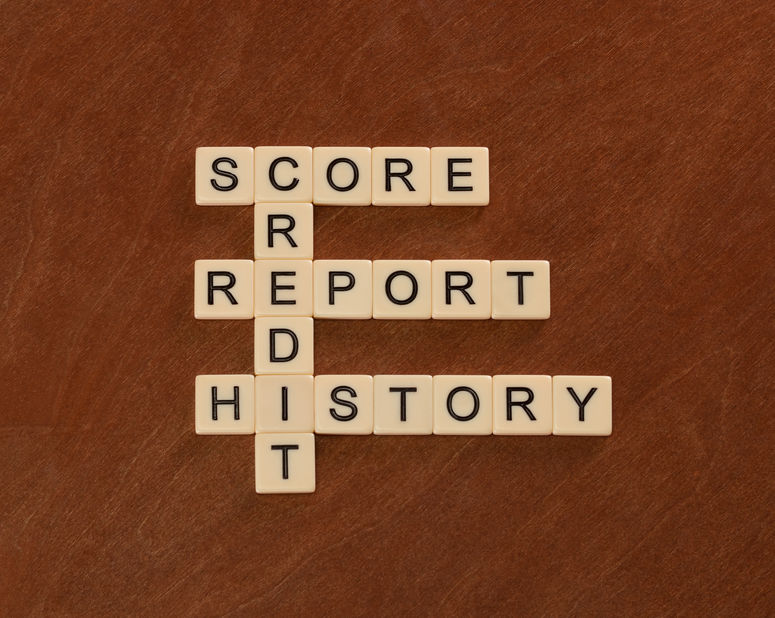Credit is an important part of most people’s lives. Banks and lenders use credit reports to make approval decisions for credit cards, loans, mortgages and more. A good credit score helps people buy cars,  purchase homes and open businesses. Bad credit can make it challenging to meet these goals.
purchase homes and open businesses. Bad credit can make it challenging to meet these goals.
So how can someone maintain or improve their credit and create a strong credit history to help them secure loans and move forward financially? Here’s everything to know about how the credit scoring system works.
Credit scores based on the standard FICO® Score typically range from 300-850. Higher is better and indicates a level of creditworthiness. There are five main factors that determine your score and each has a different weight in terms of how much impact they have.
1. Payment history
Your payment history is one of the most important parts of your credit score and accounts for about 35% of your overall credit scoring. A long history of timely payments can keep your credit score high, while missing payments can take points off. The negative impact of missing payments will increase the longer your bill is unpaid. Not paying a bill for 60 days will likely ding your credit more than being late only a month. Your late payments may also impact your credit more significantly if you owe more. Debtors can actively improve their score by making consistent on-time payments and reducing the overall debt owed.
2. Credit usage
How much credit you’re using–and how you’re using it–will affect your credit health. It accounts for about 30% of your current credit score. The amount you owe on all accounts, including personal loans, mortgage accounts, car loans, student loans and credit cards has an overall impact on your credit. Even more important is your current credit utilization rate, which is the ratio between total balance and credit limit on revolving accounts like credit cards or other lines of credit.
Using less of your overall available credit is best for your credit score. Having too much debt, like by reaching your credit limits on your credit cards, can damage your credit rating. Even making on time payments but never reducing your overall debt can not just decrease your credit score but also add interest payments, making it even harder to pay off the balance.
Both overall utilization and individual utilization rates matter. Overall utilization is the total outstanding balance on ALL accounts compared to the total available credit for all accounts. Individual utilization is the outstanding balance for each individual account compared to the available credit for that specific account. It’s important to consider both when thinking about your credit score. Having a lot of accounts with high balances can be a signal of high risk for creditors.
3. Credit history age
The overall length of your credit history can have an impact of about 15%. Several things make up your credit history age. It essentially amounts to a combination of the following factors:
• The age of your oldest account
• The age of your newest account
• The average age of your accounts
• Whether you’ve used an account recently
Opening new accounts lowers the average age of your credit, which may hurt your score, but that negative impact might be offset by a lower overall utilization and increased credit limit available through the new amount. Conversely, closed accounts can stay on your credit report for up to 10 years, keeping the average age of your credit higher. Closed accounts also don’t factor into your total utilization or credit available, but most experts recommend leaving accounts open even if you aren’t using them, unless you have a specific reason.
4. Types of credit
Having a good mix of credit types (like credit cards, student loans, auto loans and other types of credit) is about 10% of your credit score. Creditors like to see experience with several types of credit. It’s a relatively minor amount of your overall score, however, so if you don’t have any credit types beyond credit cards, it might not be the best choice to apply for a loan simply to have a more diverse credit portfolio, as you could end up paying interest and adding a credit inquiry to your report.
5. Credit applications
Any applications for any new credit are added to your credit report and make up about 10% of your credit score. Too many inquiries can adversely affect your score, and new inquiries can remain on your report for up to two years.
There are two types of inquiries. Checking your own scores to find out if you prequalify for a credit card, for instance, is known as a soft inquiry and has no effect on your score. Hard inquiries are when a creditor pulls your credit report before making a credit decision. These are the inquiries that are reflected on your report, and each inquiry can have a minor effect on your score. The impact may be more significant if your credit score is newer or there are a lot of inquiries in a short amount of time.
If you’re having trouble making payments or don’t want to have to apply for more loans to keep up with your current expenses, it might be time to consider bankruptcy. Bankruptcy will impact your credit score, but it can also help give you a fresh start that will make it easier to build credit going forward. Give us a call today to discuss your options.

